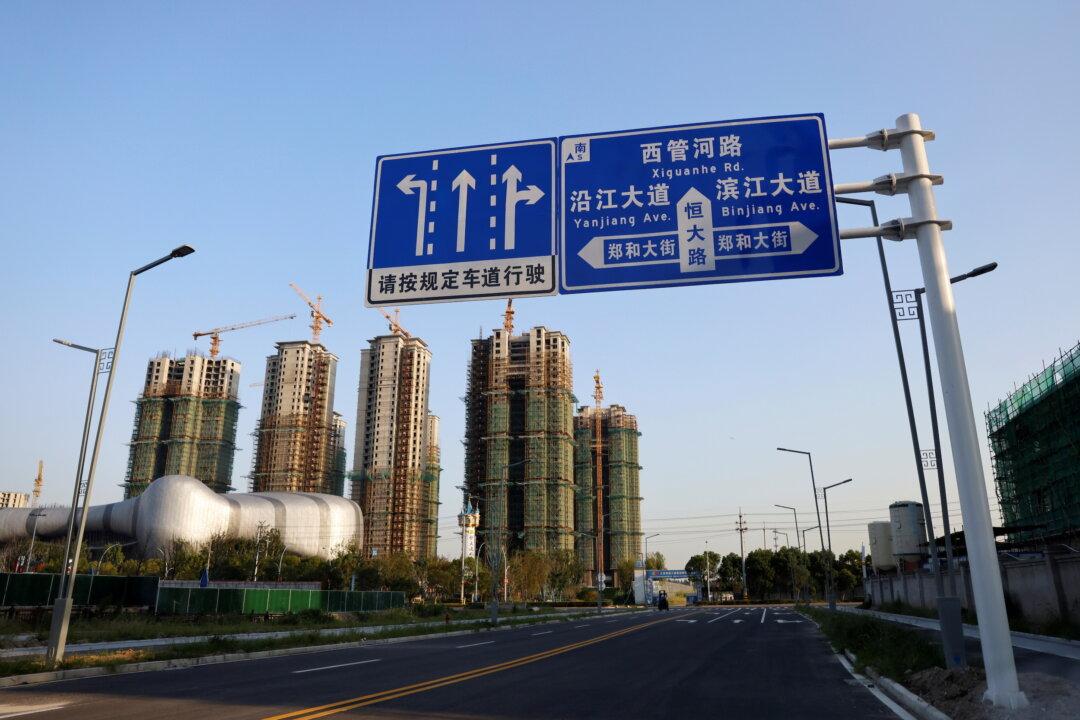SINGAPORE/SHANGHAI—China’s Evergrande Group has left global investors guessing over whether it will make a key interest payment, adding to fears that Beijing will let overseas bondholders swallow large losses as a liquidity crisis deepens for the world’s most indebted property company.
Evergrande owes $305 billion, has run short of cash, and investors are worried a collapse could pose systemic risks to the Chinese regime’s financial system and reverberate around the world.





